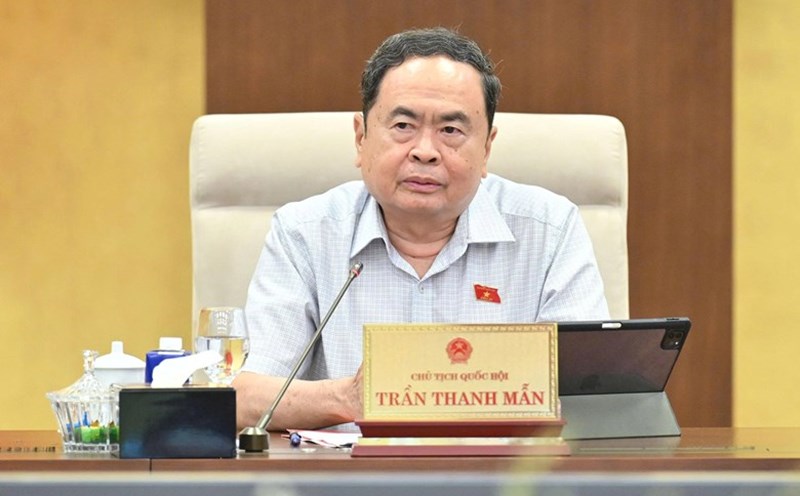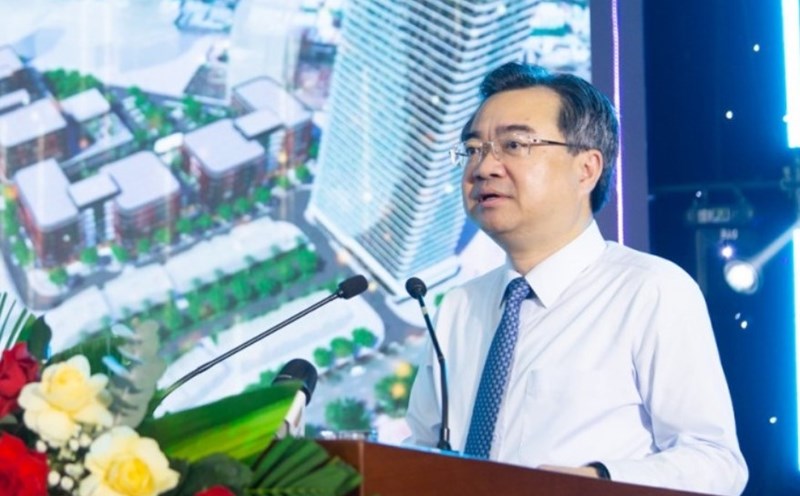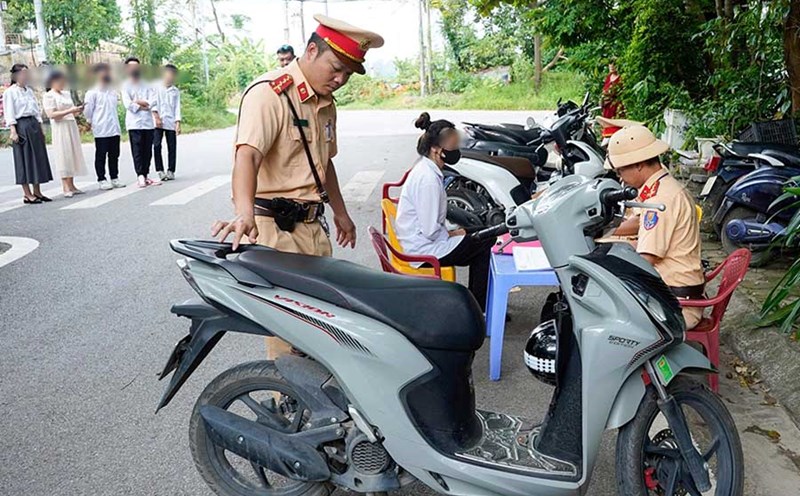HCMC hires international consultants with sufficient operational capacity
According to the plan, the Ho Chi Minh City International Financial Center has a total area of 793 hectares, stretching over four areas including 20 hectares in Ben Thanh Ward, 146 hectares in Saigon Ward, 563 hectares in Thu Thiem and 64 hectares of the Saigon River water surface. The 9.2ha core area located in Thu Thiem is the place where the headquarters of the management, supervision and arbitration agency will be built.
On August 19, Saigon Marina IFC building at No. 2 Ton Duc Thang, Saigon ward was officially inaugurated, considered an important first step in the process of realizing the international financial center.
Mr. Nguyen Cong Vinh - Director of the Ho Chi Minh City Department of Finance - said that the department is coordinating with the Institute for Development Studies to study and hire an international consulting unit with sufficient capacity and experience in implementing this model.
At the working session with the Steering Committee for the Construction of Ho Chi Minh City Central Market on September 10, Ho Chi Minh City Party Committee Secretary Tran Luu Quang proposed to urgently establish a Consulting Group, develop an annual and 5-year plan to monitor progress. Mr. Tran Luu Quang requested strict selection in personnel for management and operation of the Central Market, especially foreign language skills and financial expertise.
The leaders of the City Party Committee also said that in order for the center to promote its effectiveness, there needs to be a special financial mechanism and a policy to attract good experts and personnel. At the same time, the city must review the planning, absorb and properly resolve the proposals and comments of domestic and foreign investors.
Da Nang plans to mobilize 2 billion USD for the International financial center
In addition to the 22-storey building at Software Park No. 2 expected to be put into use by the end of 2025, Da Nang also has an 18-hectare near-sea land fund planned to build an international standard TTTC. In the period of 2027 - 2030, Da Nang will build An Don Industrial Park (located on the axis of Ngo Quyen Street to Tien Sa Port) as An Don financial quarter with an area of about 62 hectares.
In terms of technology, the city has 6 data centers in operation, of which one new center will start construction in March 2025. Da Nang aims to build more Tier III standard data centers, 5G coverage, invest in a 90 Tbps fiber optic cable station, and a creative innovation space project.
At the same time, research and propose component projects on information technology, transport infrastructure, technical infrastructure serving Vietnam International financial markets in Da Nang city in the Medium-term Public Investment Plan for the period 2026 - 2030; coordinate with investors and organizations to ensure the operating conditions of Vietnam International Financial Center in Da Nang city after its operation.
Da Nang mobilizes maximum domestic and foreign resources to develop technology infrastructure, data, energy, transportation and smart cities. The city plans to invest about 2 billion USD, of which 10,000 billion VND is from the budget, the rest is from the private sector and foreign capital.
Human resources are the key
Da Nang considers human resource development as the key, has established a TTTC policy working group, sent 10 young staff to internships in Singapore, London, Hong Kong (China), trained more than 300 staff and prepared personnel for the Steering Committee of the International TTTC Executive Agency.
Recently, the People's Committee of Da Nang City established an Advisory Council for the construction of an international financial center, gathering 17 experts, leaders of domestic and foreign banks and enterprises. Mr. Tran Dinh Thien - former Director of the Vietnam Economic Institute - holds the position of President; Mr. Richard Dean McClellan - former State Director of the Tony Blair Institute in Vietnam - is Vice President. The Council will study and propose strategies, preferential policies and mechanisms to attract investment and human resources for TTTC.
Da Nang has also signed a memorandum of understanding on cooperation with 6 international partners in research, human resource training and investment attraction.
Mr. Luong Nguyen Minh Triet - Secretary of the Da Nang City Party Committee believes that the core of the international financial center management and operation apparatus is the high-quality human resources with extensive international experience. The city is building a mechanism to recruit personnel from major financial institutions in Europe, Singapore, Dubai, and the United States to work in Da Nang.
According to Director of the Department of Science and Technology of Ho Chi Minh City Lam Dinh Thang, Ho Chi Minh City currently gathers more than 220 Fintech enterprises, of which three leading startups have raised over 200 million USD from international funds. However, the startup ecosystem still faces many bottlenecks such as complicated foreign exchange procedures, lack of testing sandbox and data infrastructure that does not meet international standards.
The advent of the TTTCQT is expected to remove these bottlenecks. With the regular sandbox, open banking models, digital insurance, peer lending, real estate accounting or carbon credit trading floors can be tested in a safe and centralized environment and monitored. In addition to attracting medium and long-term capital flows, the center also creates strong momentum for high-tech industries such as semiconductor chips, big data, cross-border e-commerce and cloud services.
When capital accounts are freely converted, global financial institutions can establish VND or foreign currency investment funds, paving the way for large-scale startup projects, while forming a carbon credit and digital asset market - "fertile ground" for environmental technology startups and ESG.
For the Central Bank to truly "take off", according to Mr. Lam Dinh Thang, Ho Chi Minh City must act synchronously on three pillars: Institutions, infrastructure and human resources. The legal framework needs to be completed with specific mechanisms in foreign exchange, tax, banking operations, and the rapid implementation of sandbox for Fintech. The city also has to invest heavily in digital infrastructure and data economy, including Tier IV standard data center, cloud computing, AI, blockchain, combined with Open Data, Open Banking policies and ensuring network security.
In terms of human resources, many specialized training programs on finance, Fintech, and AI have been included in teaching at universities and research institutes, but still need more attractive policies to attract international talent. Along with that, the innovation ecosystem must be promoted by start-up acceleration programs, specialized incubation for Fintech and international risky capital investment incentive mechanisms.








